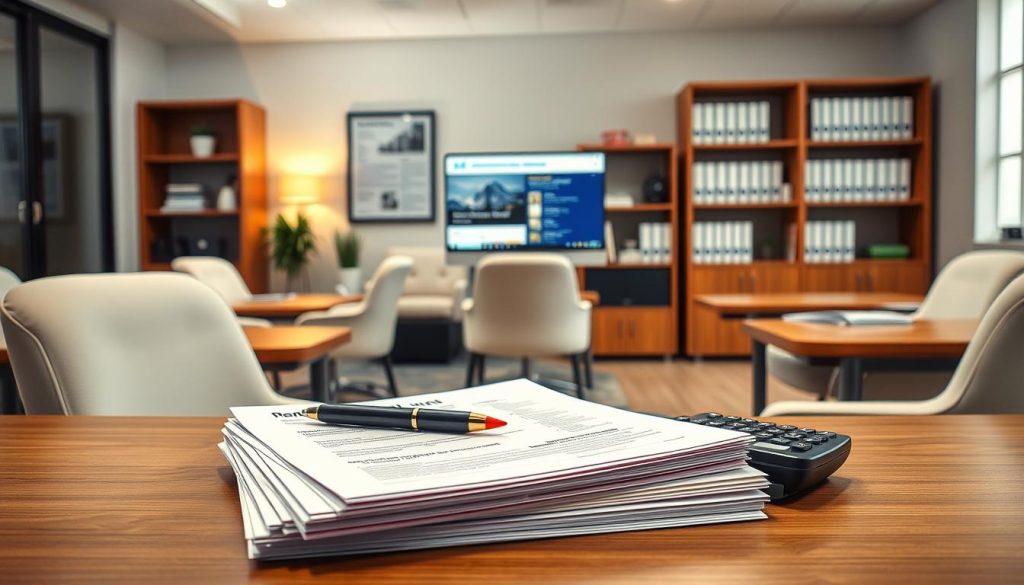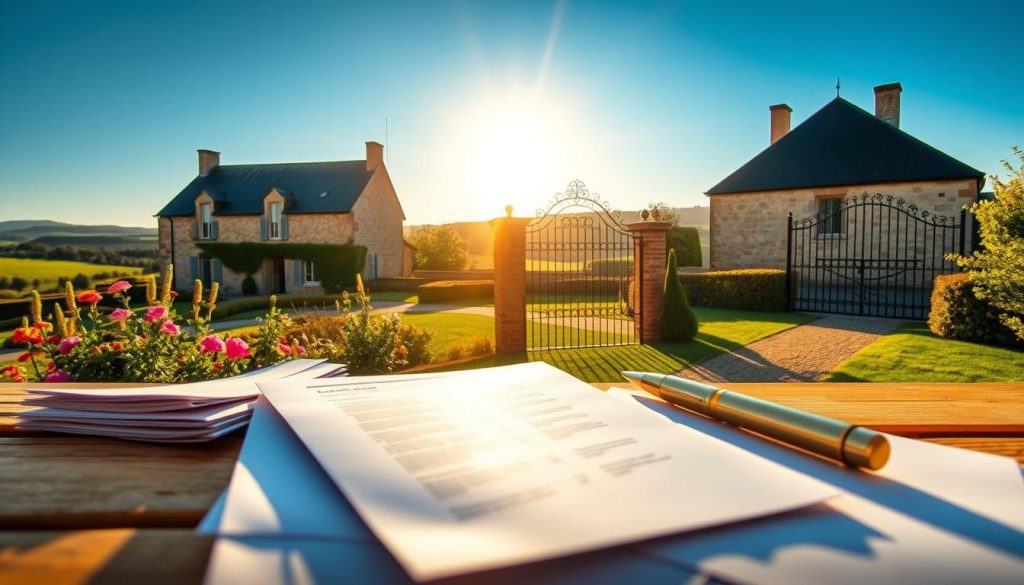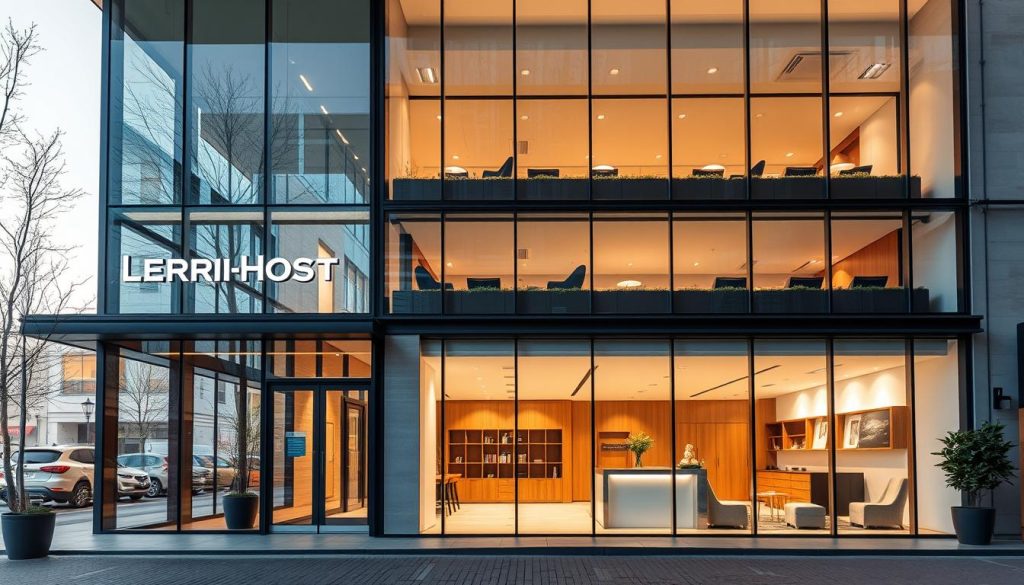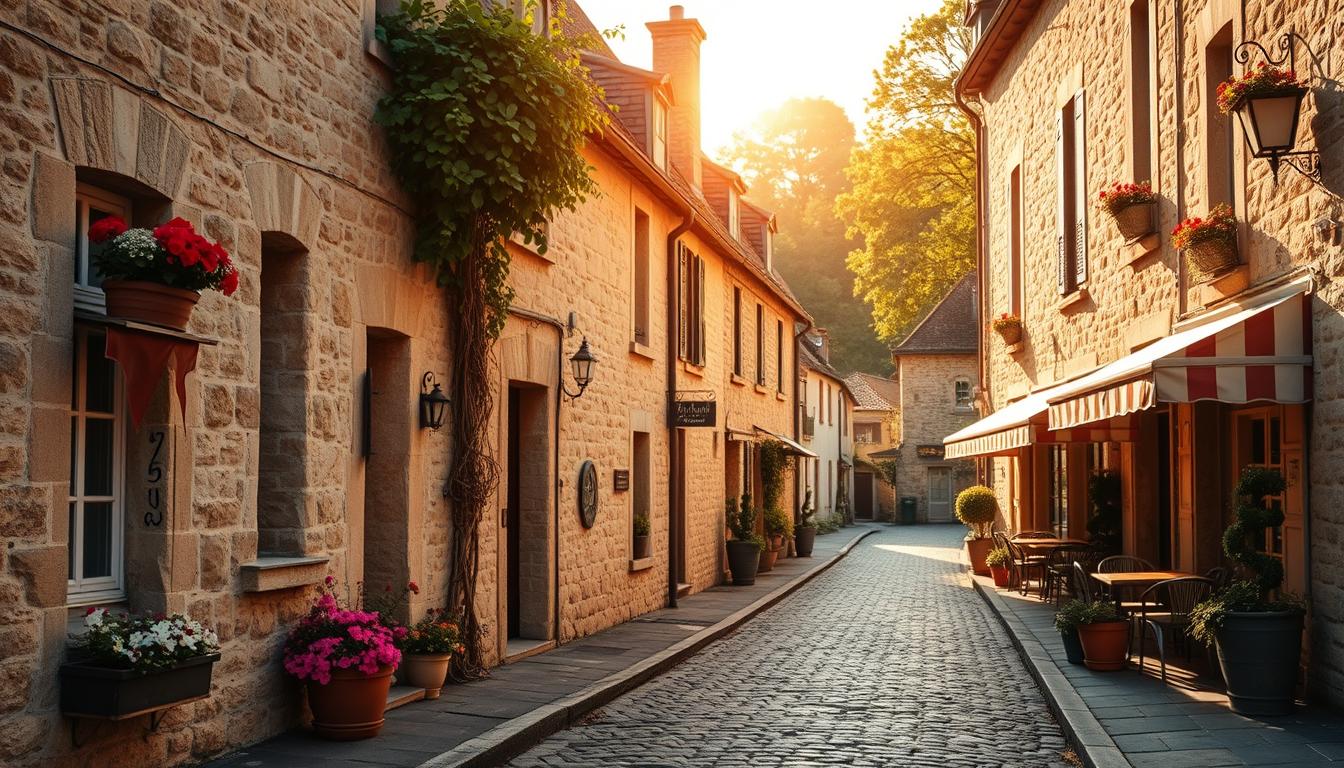Exploring renting and buying in France is a big step. It’s important to know the French real estate market well. Our guide helps clear up any confusion for renters and buyers.
We cover key points about French rental laws and buying property. Whether you’re moving here or investing, we’ve got you covered. We aim to make sure you’re ready for every step.
Overview of Renting in France
Renting in France has many benefits. It offers flexibility, which is great for those living in big cities. The French rental market has a wide range of options for different lifestyles. This section will look at why people choose to rent in France and what renters need to know.
Why Choose to Rent in France?
Flexibility is a big plus when renting in France. It lets people change their lifestyle or move for work without owning a property. Cities in France have lots of amenities like restaurants and museums. This makes living there more enjoyable.
There are many types of rental properties. You can find everything from stylish apartments in Paris to peaceful villas in Provence. This means you can find a place that really fits your needs.
Key Considerations for Renters
Before signing a rental agreement, there are important things to think about. It’s key to understand the lease terms. This makes sure you know what you’re getting into.
Talking to landlords can also help. You might be able to get better terms. The location of your rental is also important. It can affect how much you spend on things like transport and food.
| Consideration | Description |
|---|---|
| Flexibility | Short-term contracts allow for lifestyle changes without commitment. |
| Location Impact | The neighbourhood affects overall living costs and convenience. |
| Negotiable Terms | Leases can often be tailored to suit the renter’s needs. |
| Urban Amenities | Access to a vibrant cultural and social environment enhances the rental experience. |
Types of Rental Properties in France
Exploring the various types of rental properties in France helps us find what fits our needs and lifestyle. There are apartments, villas, and studios for different tastes and budgets. We’ll look at furnished versus unfurnished rentals and the differences between long-term and short-term options.
Apartments, Villas, and Studios
France offers a wide range of rental properties. Apartments are great for city living, close to amenities. Villas provide luxury and privacy, ideal for families or those wanting a relaxed life. Studios are perfect for singles or couples, with all the basics in a small space.
Furnished vs. Unfurnished Rentals
Choosing between furnished and unfurnished rentals is key. Furnished rentals save time as they come with everything you need. Unfurnished rentals might be cheaper but need more initial investment for furniture. The choice depends on your needs and budget.
Long-Term and Short-Term Rentals
It’s important to know the difference between long-term and short-term rentals. Long-term rentals offer stability and can be cheaper. Short-term rentals are good for travellers or those testing different areas before settling. Both options have their benefits based on your situation.
Legal Aspects of Renting in France
It’s key to know the laws when renting in France. This knowledge helps both tenants and landlords. The main law is from 1989, aiming to protect tenants and ensure fair rentals.
Understanding the French Rental Laws
French laws shape the landlord-tenant relationship. They cover lease lengths, price caps, and tenant safeguards. For tenants, knowing these laws means better understanding their rights and legal options.
Lease Agreement Essentials
Lease agreements are critical for renting a property. They outline the terms, including rent, lease length, and duties. Knowing what a lease includes helps tenants understand their commitments and protects them.
Tenant Rights and Responsibilities
Tenants in France have strong rights to protect them from unfair treatment. They must receive a lease copy and live in safe, habitable conditions. They also have privacy rights, with landlords needing to give notice before entering. Knowing these rights and responsibilities helps build a good relationship between landlords and tenants.
Finding Rental Property in France
Finding a rental property in France can seem daunting. But, with the right steps, we can find what we need. Online listings and real estate agencies help a lot. Local agents also offer valuable advice.
Using Online Platforms and Agencies
Online platforms have changed how we look for rentals. Many websites focus on France, with lots of listings. We can filter by location, price, and type of property. Sites like:
- SeLoger
- Logic-Immo
- Leboncoin
- PAP (Particulier à Particulier)
These sites keep their listings current and offer ways to contact landlords or agencies. This increases our chances of finding the right place. Real estate agencies also list their properties here, giving us more choices.
The Role of Local Real Estate Agents
Local real estate agents are key in finding rental properties. They know the local market well. They can help us find properties that fit our needs.
They know about neighbourhoods, prices, and amenities. This helps us make better choices. Agents can also help with viewings and negotiations, making the process smoother. They might even have listings not found online, giving us more options.
Understanding Rental Costs
When we think about renting a place in France, it’s key to know all the costs involved. Rental prices can change a lot, depending on where you are and the type of property. Knowing about typical prices, extra costs, and deposits helps us make smart choices.
Typical Rental Prices Across Regions
Rental prices in France differ a lot, from big cities to quiet countryside. In places like Paris, prices are much higher because of the demand and location. Here are some average monthly rents:
| City | Typical Rental Price (1-Bedroom Apartment) |
|---|---|
| Paris | €1,300 |
| Lyon | €900 |
| Nice | €1,000 |
These numbers show how location affects rental costs in France. It’s important to think about this when planning our budget.
Additional Costs and Fees
There are more costs to consider beyond the rent. We might have to pay agency fees, which can be up to a month’s rent. There are also ongoing charges for upkeep and utilities. Knowing these extra fees helps us budget better for living expenses.
Insurance and Deposits
When renting in France, we also need to think about insurance deposits. Landlords usually ask for a deposit that’s one or two months’ rent. This protects against any damage. Also, getting tenant insurance is key to protect our stuff. This way, we’re ready for any surprises during our stay.
Application Process for Renting
The rental application process can seem daunting. But, knowing the key steps makes it easier. Start by getting all the documents you need. This will help you deal with landlords better and boost your chances of finding the right place.
Preparing Required Documents
Before you start, make sure you have all the necessary paperwork. You’ll need:
- Proof of income, such as payslips or bank statements
- A valid identification document, like a passport or driving licence
- Residency history for the past few years
- Credit report to show you’re financially stable
Having these documents ready shows you’re a reliable tenant. It also makes the application smoother.
The Importance of References
Good rental references are very important. Landlords want to know about your past and how you’ve rented before. Look for references from past landlords, employers, or people who know you well. They should speak well of your rental history.
Securing Your Rental Agreement
After you’ve applied and given all the documents, it’s time to talk about the rental agreement. This agreement is between you and the landlord. It outlines the rules and terms of your rental. Be open in your discussions, clear up any doubts, and make sure everyone knows their part. This will help make your renting experience good.

Moving into Your Rental Property
Starting a new life in a rental property requires careful steps. A detailed diligence check and setting up utilities right are key. This way, our new home will be ready and comfortable from the start.
Conducting a Diligence Check
A diligence check is vital when moving into a rental. It lets us check the property’s condition and spot any problems before signing the lease. We should pay close attention to:
- Examine the structural integrity of the property, including walls and ceilings.
- Test all appliances, such as the heating system, oven, and refrigerator.
- Inspect plumbing for leaks and ensure all faucets are functional.
- Check electrical outlets and ensure all wiring is safe and operational.
- Verify that the premises are secure, focusing on doors and windows.
Keeping a record of our findings is helpful. It can also help us talk to landlords about any repairs needed.
Setting Up Utilities and Services
After the diligence check, setting up utilities is next. This makes sure we have all the services we need when we arrive. We usually need to arrange for:
- Electricity
- Water
- Gas
- Internet
- Cable or satellite television
Getting in touch with utility providers early helps us set up accounts and confirm services before we move. Being ahead of this can reduce stress during our move.
Tips for a Smooth Rental Experience
Renting a property in France can be rewarding if we understand the local ways. Building a good relationship with our landlord is key. This makes talking easier and helps solve any problems that come up.
It’s also important to know about cultural differences in France. These differences affect how we talk to landlords and neighbours.
Building a Relationship with Your Landlord
Having a good relationship with your landlord is essential. We should always be open about our needs and worries. Regular meetings show we care about the property and help fix problems quickly.
- Be polite and respectful in all communications.
- Follow through on promises and commitments, such as timely rent payments or property maintenance.
- Inform your landlord of any issues immediately to prevent escalation.
Navigating Cultural Differences
Knowing about cultural differences in France makes our stay better. Different customs and practices can shape what we expect. Being aware of these helps avoid misunderstandings.
- Familiarise ourselves with local customs regarding property upkeep.
- Respect privacy norms as they can differ from other cultures.
- Engage in polite greetings, which can foster goodwill.
Overview of Buying Property in France
Buying property in France is appealing for many reasons. It’s great for personal use or as an investment. The French property market is stable and attractive, making it a top choice for investors.
By owning a property, you can have a home and earn rental income. You can also see the value of your property increase over time.
Why Invest in French Real Estate?
Investing in French real estate has many benefits. France is famous for its beautiful landscapes, rich culture, and high quality of life. These factors make properties in demand, in popular areas.
Having a property can be a holiday home or a permanent place to live. You can also rent it out when you’re not using it. This way, you can make money from your investment.
Key Considerations for Buyers
Before buying property in France, think about a few important things. The location is key. Cities often have higher rental income, while countryside areas offer peace.
The type of property you choose should match your goals. Whether it’s a small apartment, a big villa, or a quaint cottage, it should fit your needs. Also, consider the financial side, like taxes, upkeep, and renovation costs.

Steps in the Buying Process
The buying process in France has several important steps. We need to carefully navigate each one. From making an offer to understanding the role of notaires, each step is key for a successful buy. Here are the essential practices to follow.
Making an Offer
When we find a property that fits our needs, we start by making an offer. This involves a few steps:
- First, we research the property market to make sure our offer is fair.
- Then, we submit a written offer to the seller or their agent, including the price and any conditions.
- After that, we wait for the seller’s response, which might involve negotiations before we agree.
The Role of Notaires in Transactions
Notaires in France are very important in the buying process. They are public officials who make sure property deals are legal. Their tasks include:
- They prepare the purchase agreement, known as the compromis de vente.
- They also do due diligence on the property to check ownership and for any issues.
- Lastly, they help with the final deed of sale, where the payment is made and ownership is transferred.
Getting a notaire involved early can make the buying process smoother. It ensures all legal steps are followed correctly.
Legal Considerations for Buyers
When we buy property in France, knowing the law is key. Buyers need to learn about French property laws. This knowledge helps us understand the buying process better and follow local rules.
Understanding French Property Laws
The laws in France are unique, covering ownership, sales, and buyer rights. Properties can be owned in different ways, like freehold or leasehold. It’s wise to get advice from a legal expert to make smart choices and avoid problems.
Tax Implications for Buyers
Knowing about taxes is important when buying property in France. Buyers have to pay a notary fee, which is 7% to 8% of the price. There are also property taxes and communal charges to consider. Being aware of these costs helps us plan our budget and avoid surprises after buying.
Financing Your Property Purchase
Buying property in France means we need to understand the money side. We have to look at different ways to finance our purchase and how currency exchange affects it. These things can change how much we can spend and what we can buy.
Exploring Mortgage Options in France
In France, we can choose from several mortgage types. These include fixed-rate, variable-rate, and interest-only mortgages. Fixed-rate mortgages keep our interest rate the same, which is stable.
Variable-rate mortgages can change with the market, starting low but risking more later. Interest-only mortgages let us pay only interest for a while, which can be good short-term but increases payments later.
Currency Exchange and Its Impact
The exchange rate is key for foreign buyers in France. It changes how much we can spend. When we convert GBP to EUR, the rate can go up or down, affecting our budget.
Knowing about currency trends helps us make better choices. It can help us get better deals on our mortgages in France.

| Mortgage Type | Rate Type | Advantages | Disadvantages |
|---|---|---|---|
| Fixed-rate Mortgage | Fixed | Stability in payments | May have higher initial rates |
| Variable-rate Mortgage | Variable | Potential for lower initial rates | Payments may increase |
| Interest-only Mortgage | Interest-only | Lower short-term payments | Larger payments due later |
Post-Purchase Considerations
As new property owners, we face many post-purchase tasks. These tasks are key to our investment’s success. Good property management keeps our asset’s value high and builds strong tenant relationships. We’ll cover important property management tips, maintenance, and how to interact with tenants. Plus, we’ll share renovation ideas to boost the property’s appeal and value.
Property Management for Landlords
Good property management makes our job easier and keeps tenants happy. Important steps include:
- Regular communication with tenants to build rapport.
- Timely maintenance and repairs to keep the property in excellent condition.
- Implementing a structured screening process for new tenants to reduce risks.
- Understanding local rental laws to ensure compliance and avoid legal issues.
Renovation and Improvement Tips
Smart renovations can greatly increase our property’s value. Here are some top renovation tips:
- Focus on high-impact areas such as kitchens and bathrooms, which can offer the best return on investment.
- Consider energy-efficient upgrades, making the property more appealing to environmentally conscious tenants.
- Refresh the interior with new paint and flooring to modernise the space without a massive budget.
- Create an outdoor living area, which can attract tenants looking for spaces to unwind.
Conclusion: The Benefits of Renting and Buying in France
Renting and buying property in France have their own perks. They suit different needs and situations. Knowing these differences helps people make the best choice for them.
The process can seem complicated. But with the right help, it can be easier.
Why Choose LerriHost for Your Needs?
At LerriHost, we help clients understand the French property market. We know the pros of renting and buying. This lets us offer services that fit your needs.
Whether you want to rent in Paris or buy in Provence, we’ve got you covered. Our knowledge of the local market makes the process smoother. We aim to make you happy with your choice.
Contact Us for More Information
Want to know more about LerriHost services in the French property market? Contact us. Our team is here to help and answer your questions.
| Aspect | Renting | Buying |
|---|---|---|
| Initial Investment | Lower upfront costs | Higher initial investment |
| Flexibility | More flexible terms | Less flexibility, long-term commitment |
| Maintenance | Managed by landlord | Owner responsible for maintenance |
| Long-term Investment | No asset accumulation | Potential for asset appreciation |
| Stability | Dependent on lease terms | Stable long-term residence |
Additional Services Offered by LerriHost
LerriHost provides a variety of services to help individuals and businesses in France. We offer custom company formation support, nominee services for foreign investors, and banking solutions. These services make financial transactions easier.
Company Formation Support
Starting a business in France can be tough without the right help. Our team offers detailed company formation support. We help with:
- Choosing the right business structure
- Preparing required documents for registration
- Navigating legal requirements efficiently
Nominee Services and Banking Solutions
Our nominee services help foreign investors meet local laws while keeping ownership. Our banking solutions make financial operations smooth. We offer:
- Access to local bank accounts
- Advisory on financial regulations
- Support in international payment processing

| Service | Description | Benefits |
|---|---|---|
| Company Formation Support | Guidance through the registration process | Ensures compliance and legal protection |
| Nominee Services | Representation for foreign investors | Maintains ownership while following local laws |
| Banking Solutions | Setting up business banking accounts | Simplifies financial transactions and reporting |
Contact LerriHost
Exploring the property market in France can be tough, whether you’re looking to rent or buy. Our dedicated team at LerriHost is here to help you every step of the way. We’re ready to offer you personal support for any questions you have about our services or the French property market.
Get in Touch with Us
If you have questions or need help, don’t wait to reach out. You can call LerriHost directly at 07538341308. We’re here to give you the info and advice you need to make smart choices about your property.
Phone Number: 07538341308
Our dedicated customer service team is ready to answer your questions. You can find all the LerriHost contact details easily. Reach out today and let us help you find the perfect property in France.







